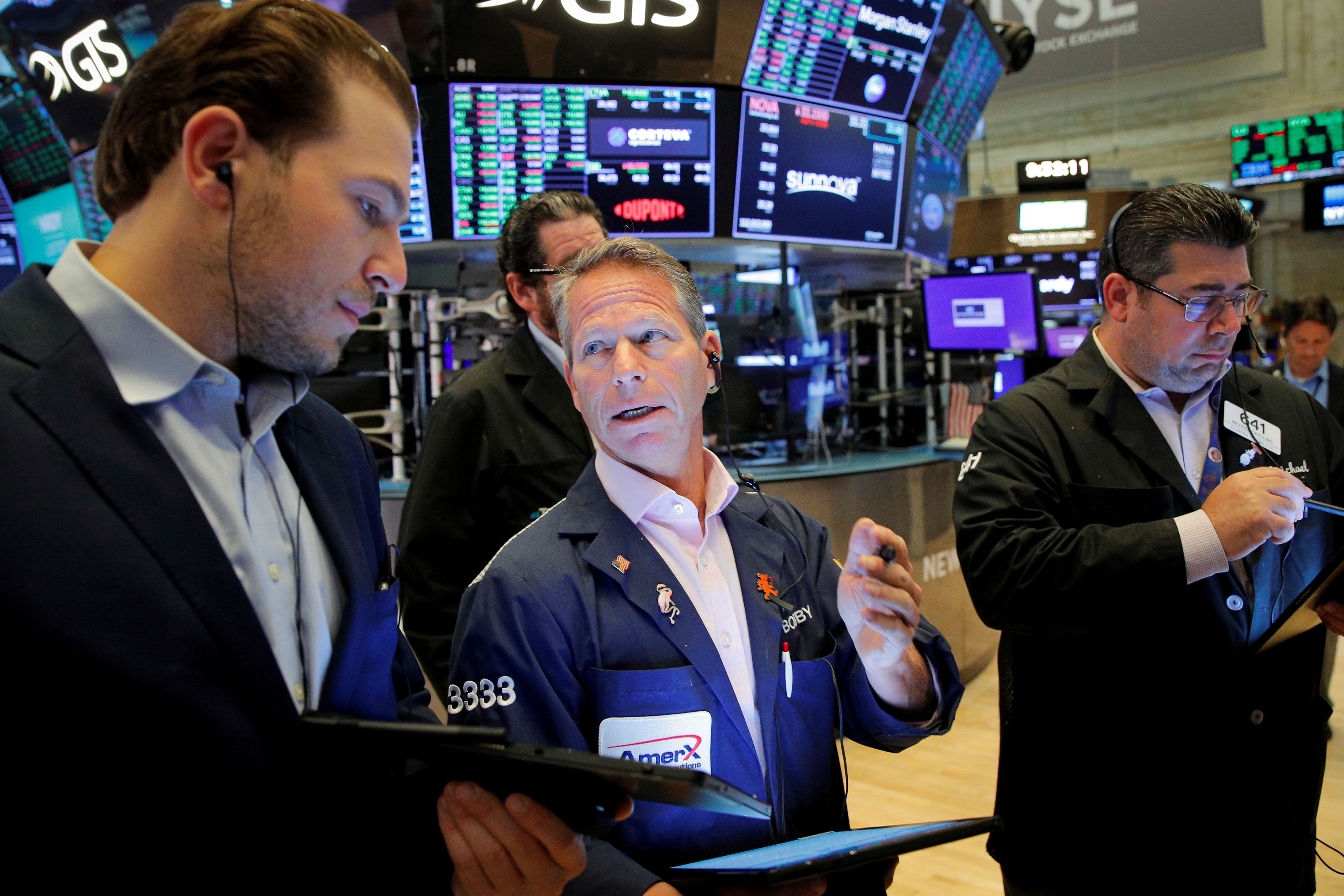
Traders work on the floor of the New York Stock Exchange (NYSE), September 21, 2021.
Brendan McDermid | Reuters
Stock futures fell in early morning trading on Friday after the S&P 500 notched its worst month since March 2020.
Futures on the Dow Jones Industrial Average dropped 224 points. S&P 500 futures and Nasdaq 100 futures both traded in negative territory and pointed to opening losses. Earlier, Dow futures had plunged around 300 points.
The market just capped a tumultuous September as inflation fears, slowing growth and rising rates crept up. The S&P 500 finished the month down 4.8%, breaking a seven-month winning streak. The Dow and the Nasdaq Composite fell 4.3% and 5.3%, respectively, suffering their worst months of the year.
“A combination of slowing growth, less accommodative monetary policy, China headwinds, fading fiscal stimulus, and nagging supply chain bottlenecks all conspired to weigh on investor sentiment as we head into fall and 4Q21,” Chris Hussey, a managing director at Goldman Sachs, said in a note.
Ten of the 11 S&P 500 sectors suffered losses in September, led to the downside by a 7.4% monthly drop in materials stocks. Energy is the best performer of the month, gaining more than 9%.
The S&P is now 5.2% below its all-time high reached in early September. The broad equity benchmark is still up nearly 15% on the year.
Investors await key inflation data due Friday to gauge the state of price pressures as the economy recovers from the pandemic. The core personal consumption expenditures price index, the inflation measure the Federal Reserve uses to set policy, is expected to rise 0.2% in August and 3.5% year over year, according to economists polled by Dow Jones.
The inflation measure jumped 3.6% year over year in July, which hit the highest level since May 1991.
“As we wrap up the third quarter and look ahead, investors will likely need to remain nimble as the economic recovery continues in a zig zag,” said Mike Loewengart, managing director of investment strategy at E-Trade Financial.
Congress was poised to prevent a government shutdown Thursday. The Senate and House both passed a short-term appropriations bill that would keep the government running through Dec. 3 and sent it to President Joe Biden to sign.




